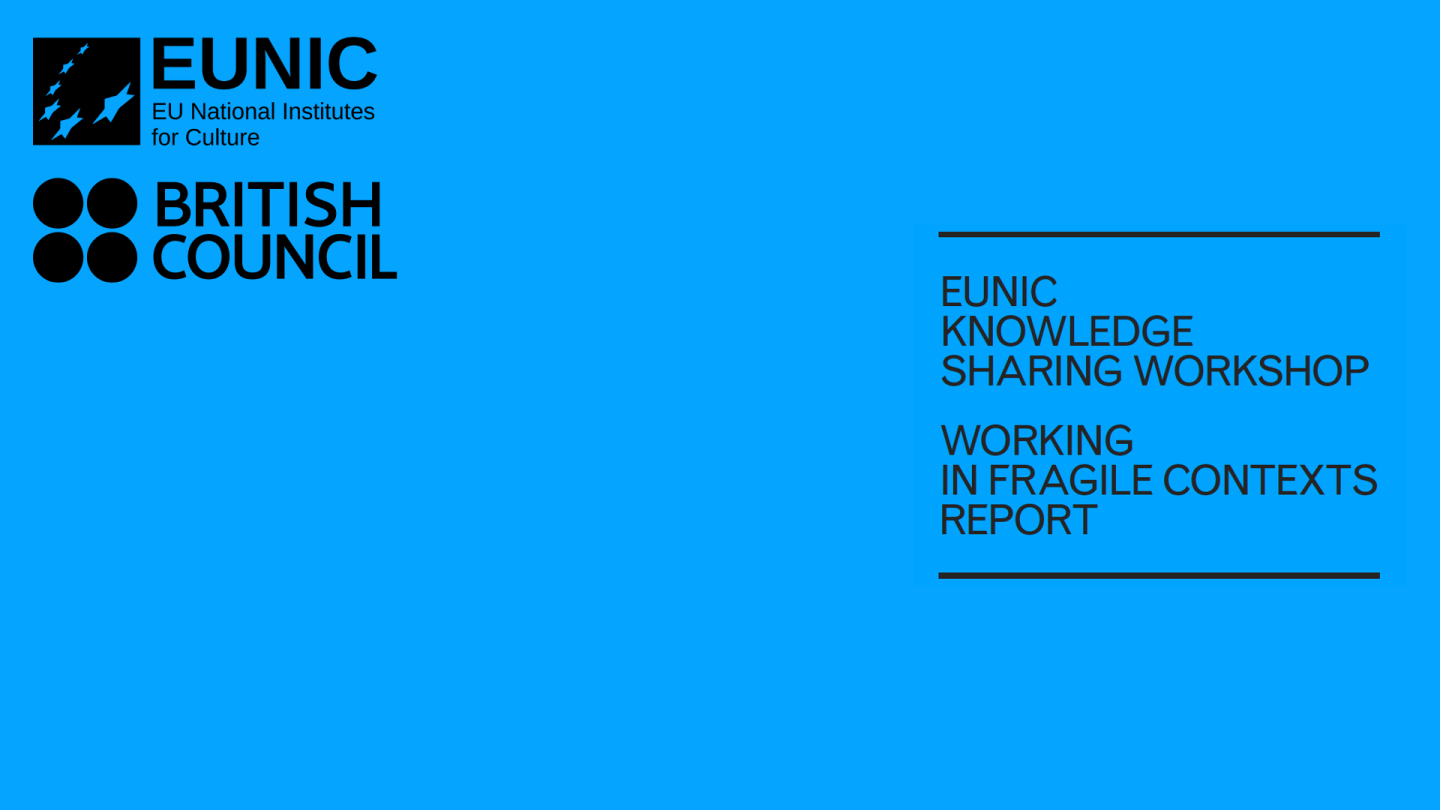

Cultural Relations in Fragile Contexts Report available
The report on Working in Fragile Contexts offers recommendations to EU institutions, EU Delegations, EUNIC Global and EUNIC members.


At the Knowledge Sharing Workshop held in November 2019 in Nicosia, EUNIC colleagues together with experts from EU Delegations and universities discussed the challenges of working in fragile contexts and how obstacles can be overcome through a cultural relations approach. The learnings from this workshop were now gathered into a report.
The report explains the different operating models organisations use in fragile contexts, and contains case studies dealing with international cultural relations and cooperation at different stages of conflict. The case studies' objectives range from violence prevention to peace building and post-conflict resolution and cover nine countries: Afghanistan, Colombia, Iraq, Libya, Occupied Palestinian Territories, Turkey, Mali, Syria, and Yemen.
It also includes recommendations to the EU institutions, EU Delegations, EUNIC Global and EUNIC members. They are valuable in addressing the common challenges identified and strengthening European cultural cooperation in fragile contexts.
Key recommendations
- The EU institutions should give a clear mandate to EU Delegations to work with EUNIC members in a framework of close cooperation, especially in cultural cooperation programmes and projects.
- Regular coordination and strategy meetings should be organised with EUNIC members, EUNIC clusters and other stakeholders working on culture and education.
- EUNIC members should increase their collaboration in form of clusters or working groups in specific countries.
Participants at the workshop were cultural relations and development cooperation practitioners from the French Ministry of Foreign Affairs, Goethe-Institut, ifa (Institut für Auslandsbeziehungen), Instituto Cervantes, AECID (Spanish Agency for Development Cooperation), British Council and the EU institutions. The workshop was co-organised by EUNIC, the British Council and the Cyprian Ministry for Education, Culture, Youth and Sports.
In an Online Launch Event held on 24 June 2020 the report was presented to the public. The recording can be viewed here.
